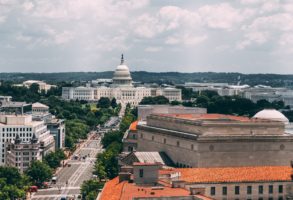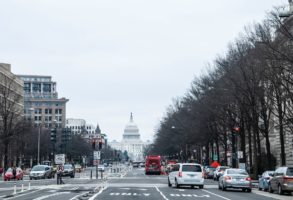
Published December 4, 2016
In the New York Times this weekend, Molly Worthen takes note of a series of liberal education and political philosophy programs run by a series of conservative-leaning institutions in recent years. Some, like the Claremont Institute’s wonderful Publius Fellowship, have been around for decades. Others, like the Hertog Foundation’s summer seminars, are relatively new. And all in one way or another see themselves filling gaps in the educations of their students—gaps created by the inadequacies of the modern academy.
The Left should take note of this and try to follow the example, Worthen argues. Liberals, she says, “can’t afford to dismiss Great Books as tools of white supremacy, or to disdain ideological training as the sort of unsavory thing that only conservatives and communists do. These are powerful tools for preparing the next generation of activists to succeed in the bewildering ideological landscape of the country that just elected Mr. Trump.”
Having taught in a few of these kinds of programs in recent years, I’m very glad to see them noticed and held up as models. But I think Worthen misunderstands their character and aims some. She takes them to be fundamentally political enterprises, and suggests that progressives don’t emulate them because they are not inclined to see the value of exploring the philosophical foundations of their political enterprise. Surely the great books have something to offer the Left too, she writes:
Progressives can find kindred spirits among classic conservative thinkers: Adam Smith on moral sentiments, Edmund Burke’s critique of imperial power. You can’t fully understand the theology of the Rev. Dr. Martin Luther King Jr. without grasping Augustine’s doctrine of original sin. But few young progressives read these authors. The hyperspecialized, careerist ethos of mainstream universities has served them just as poorly as it has conservatives.
This very point, however, ought to turn Worthen away from the narrowly political argument she advances. What the courses that she points to really do is not generally about filling out the philosophical foundations of a political project on the Right so much as it is about exposing students to the philosophical foundations of our civilization and our republic. The gaps too often left unfilled by the modern university are gaps in liberal education, and so precisely not in ideological training. Indeed, it is an excess of ideological training that often creates these gaps.
Obviously the great books have a lot to offer the Left, but that’s because they have a lot to offer everyone and anyone. Sure, what Adam Smith says about our innate sociality could well reaffirm some things liberals argue, and what Edmund Burke says about the limits of power could reinforce modern critiques of imperialism. But don’t just read what great minds have thought when it sounds like what you think. Read Smith and Burke (and far greater minds still, who will offer you far deeper and more fundamental challenges) to learn from them what you may not already know, and what might challenge what you think and how you think.
Liberal education ought to be liberating. And in my experience these bourgeoning summer programs often seek to liberate their students—from our familiar political categories among much else. These programs are therefore a challenge to the academic enterprise only to the extent that that enterprise seeks to imprison those students, which now means they are a very great challenge indeed.
It would be great if more people saw the value in such intellectual liberation through an engagement with our rich tradition of wisdom seeking. But do it to seek wisdom, and let its light reflect on politics as it will. If you imagine that immersing students in the Western philosophical tradition is bound to leave them inclined to agree with your politics (whatever your politics might be), you’re likely to serve those students poorly—not to mention likely to be disappointed.
Yuval Levin is the Hertog Fellow at the Ethics and Public Policy Center.





